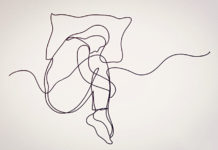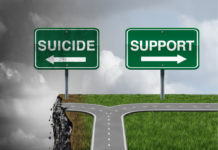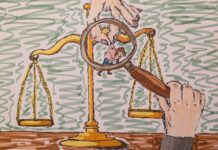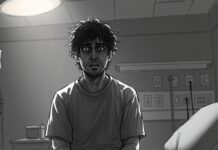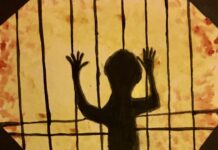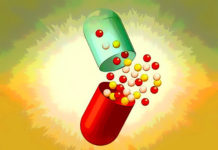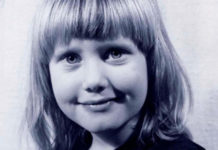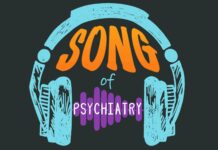The Wind Never Lies
When I was young I believed the world spoke to me. Lightning split across the sky to the pulse of my thoughts. Rings around...
The Breaking Point
How did I become someone who could barely function? I was a high-performing sales executive ranked in the top 2% of an international business communications company. But now, after using powerful psych meds for depression and anxiety for more than a decade, I couldn’t do basic things like go to the grocery store, plan a meal, make dinner, or get together with friends.
Subtle Ways Psychiatry Has Harmed Us
We’re not dysfunctional or bad just because there are two of us in here. What’s more important than being a socially acceptable single person is that we know how to get along and manage our trauma and our life together. We just need to be accepted as we are.
Suicide Prevention and Service Failure in the U.K.
It's really hard to talk about suicide. We are constantly constrained by the notion that our mental health is our individual responsibility to manage, told to “live our best lives” by a never-ending campaign of exploitative wellness fads. A more collective conversation is needed.
“It Is What It Is” — Learning From the Past Without Getting Stuck in...
My first mental-ward stay would not be the last. At last count... I lost count. Fortunately for me, I've learned much from my experience and vicariously from my peers.
The Outing of a Consumer
The problem with being a consumer is that we get consumed. I’ve been the bacon at far too many mental health picnics. Someone’s salary gets paid, someone’s program gets funded, someone’s career gets enhanced, someone gets accolades for being so altruistic and such a great savior — and me, what do I get? Exposed, laid bare, and isolated.
The “Sick Enough” Paradox in Eating Disorder Treatment
I had internalized that not only would I be socially rewarded for starving myself, but also that I could only earn care by proving that I was sick enough to meet their criteria.
The Undervalued Potential of Living Without Psychiatric Drugs
Compared to the last six years, compared to how intense the drugs are and how grueling the side-effects, my first psychosis at 17, I admit, was honestly not that bad.
Navigating the Mind: What Medication Cannot Address
I believe there's no harm in giving meds a try—it worked for me. Just be aware that they can only do so much. The rest of the journey requires some navigation and self-direction.
Tortured by the Mental Health System Due to Misdiagnosis of Schizophrenia
The police think my non-existent "schizophrenia" makes me a danger to the community. If I don't show up for my injections I'm subject to police arrest and kidnapping from my home.
Recovering Myself
I have known altered states of consciousness since I was a child. I clearly remember staring into the mirror in my mother’s bathroom and...
Student Counseling Services: Do They Really Help the ‘Mentally Ill’?
I used to think that the counseling center would help me to resolve my inner conflicts. That visiting the center would do some good for me. I have since realized that most mainstream “mental health” is more damaging than helpful. These days if student counselors see any problem with a student visiting the center, they send him or her to see a psychiatrist.
Childhood Trauma Is Not a Mental Illness
My childhood was stolen by systems focused on labeling and medicating me instead of healing the effects of abuse and neglect.
Child Abuse and Psychosis: My Healing Journey
Hospitalized for "grandiose delusions," I began to wonder: Was my dis-orientation really just a sickness? Or in "treating" it, was I missing a powerful re-orientation toward healing old wounds?
My Diagnosis of ADHD and the Downfall That Followed
A simple, one-time visit to an unfamiliar counselor resulted in my diagnosis of ADHD. That same visit started my avalanche of drug abuse. I was 19 years old when I was falsely diagnosed with ADHD, and it forever changed my life.
The Other Side of the Cage
My doctor estimates that I have less than a year to live. I do not want my life to end as it began, with trauma, pain and dehumanization. I would like dignity and compassion in my final days.
Antidepressant-Induced Mania: When My Mind Became a Literal Hell
The amount of anxiety I felt on these medications — and for a couple of years after — was unfathomable. I felt as though I was trapped in an air-tight vat, constantly gasping for breath. And my thoughts were guided by my state of constant worry and panic.
My Mood, My Choice
With nothing left to lose, I’d reached the point at which I had to make a choice: to fight, or to give up. Though things seemed to not be going my way, I decided to take back control and make drastic changes in hopes to survive. That’s when yoga, meditation and nutrition came into my life, but first, I had to find a doctor to help me get off the medication I was currently on.
“All for the Best of the Patient”
For psychiatric ‘help’ to happen by force is a paradox and makes absolutely no sense. It can destroy people's personality and self-confidence. It can lead, in the long run, to physical and psychological disability. My dear daughter Luise got caught in this ‘helping system’ by mistake, but she didn't make it out alive. I'm sad to say I later discovered that the way Luise was treated was more the rule than the exception.
Boy, Interrupted: A Story of Akathisia
I watched my son’s life change almost overnight. He developed akathisia from antidepressants, taken as prescribed for just a few weeks for garden-variety anxiety.
Why My Daughter Died and I Lived
To be a parent of a suicidal child is to be in a terrible position, where you hold in your hands the life most valuable to you and know that any slip of your hands may end that life. In the 1970s, my suicidality was treated nonmedically and I lived. In the 2000s, my daughter Martha’s suicidality was treated medically and she died.
Akathisia: Very Nearly the Death of Me
Akathisia is truly an indescribable thing—and has to be one of the most hellish experiences on earth. It’s like your brain is hijacked. Every day I thought could be my last.
Calm, Organized, Homicidal Behaviour – My Connection to School Shooters
There is little doubt in my mind that many school shooters were in an antidepressant-induced state of psychosis, which is a loss of contact with reality that makes it difficult to distinguish between what is real and what is not real. That's what happened to me. I started taking 60mg of Paxil a day. Three days later, I planned my suicide. Then I planned a murder.
One Pill To Disrupt: Psychiatric Drug Withdrawal and the Marital Relationship
The suicidality that accompanies akathisia is the natural human impulse to escape being tortured. To save my wife, the woman I love, I was forced to argue for her continued torture.
The Song of Psychiatry: The Impact of Language
I want to share the journey I took to find a new language, a new story, around my experiences and how that journey impacted my survival.


